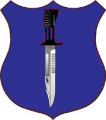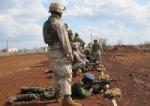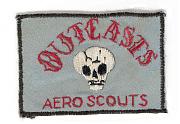Four of Bolivia's richest departments Monday said they will put their autonomy hopes to referendum votes, as President Evo Morales called for talks with the country's nine governors in a bid to defuse rising tensions.
The energy-rich eastern departments of Santa Cruz, Tarija, Beni and Pando announced signature drives to get the legal quorum of 8.0 percent of their local populations behind referendums to approve their quest for greater autonomy, officially declared by state officials on Saturday.
The governors of Cochabamba and Chuquisaca have also announced similar aspirations, as Bolivia's three remaining western departments -- La Paz, Oruro and Potosi -- stand firmly behind Morales in the biggest challenge yet to his socialist reform movement.
Morales, the country's first indigenous president, has alienated the country's rich lowland regions, who populations are largely ethnically European and mixed, by pushing his plan to redistribute the country's wealth to the poor natives in the mountains ...



 (There is obviously hope for me yet, apparently). Although there are one or two public mentions of a Marine Corps reading list in the mid 1980s (sorry, can’t remember exactly when but I remember one suggestion authored by some obscure Marine officer named TX Hammes
(There is obviously hope for me yet, apparently). Although there are one or two public mentions of a Marine Corps reading list in the mid 1980s (sorry, can’t remember exactly when but I remember one suggestion authored by some obscure Marine officer named TX Hammes  ), the Commandant’s Reading List was initiated officially under Gray in 1990 in support of the promulgation of Fleet Marine Force Manual 1 (FMFM-1), Warfighting (as it was then known – now MCDP -1, which was rewritten in 1996-7). The Commandant’s reading list was part of a push to get Marine officers, at least, to read more military history (and also to undertand the 'why' of adopting MW), and as part of this through 1990-91 they revamped the curriculum at the C&SC (and indeed, created the MC University) with the emphasis being on infusing military history throughout the courses taught (see, for example, Paul K. van Riper, The relevance of history to the military profession: an American Marine’s view’, in Williamson Murray and Richard Hard Sinnreich, eds., The Past as Prologue, Cambridge University Press, 2006).
), the Commandant’s Reading List was initiated officially under Gray in 1990 in support of the promulgation of Fleet Marine Force Manual 1 (FMFM-1), Warfighting (as it was then known – now MCDP -1, which was rewritten in 1996-7). The Commandant’s reading list was part of a push to get Marine officers, at least, to read more military history (and also to undertand the 'why' of adopting MW), and as part of this through 1990-91 they revamped the curriculum at the C&SC (and indeed, created the MC University) with the emphasis being on infusing military history throughout the courses taught (see, for example, Paul K. van Riper, The relevance of history to the military profession: an American Marine’s view’, in Williamson Murray and Richard Hard Sinnreich, eds., The Past as Prologue, Cambridge University Press, 2006).





 ).
).  ). Rosenau also identifies a range of drivers for this trend, ones that are consistent with SKi's explanation.
). Rosenau also identifies a range of drivers for this trend, ones that are consistent with SKi's explanation.
 I think it was not von Mellenthin, so maybe Balck (?). But as I said, I really would have root around in my notes to get the specific details of precisely who and when. It is one of those small details in a much bigger analytical narrative I am working on, so what is left of my memory put the specifics aside knowing I have it on paper somewhere.
I think it was not von Mellenthin, so maybe Balck (?). But as I said, I really would have root around in my notes to get the specific details of precisely who and when. It is one of those small details in a much bigger analytical narrative I am working on, so what is left of my memory put the specifics aside knowing I have it on paper somewhere.

Bookmarks